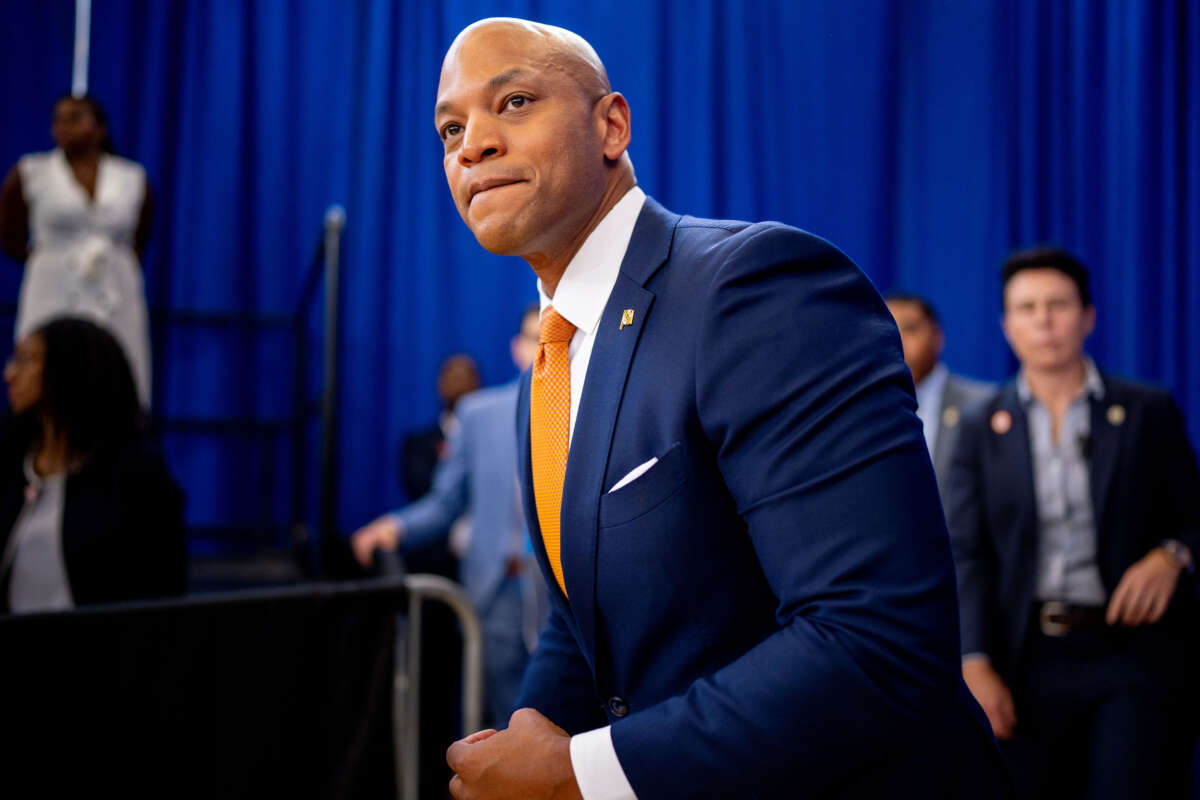Honest, paywall-free news is rare. Please support our boldly independent journalism with a donation of any size.
On Monday, Maryland Gov. Wes Moore (D) issued a mass pardon for cannabis-related offenses in the state, one year after the state formally legalized recreational marijuana use.
In addition to pardoning thousands for cannabis use, Moore’s executive order also pardons those who have been convicted of cannabis paraphernalia-related convictions, making Maryland the first state in the country whose governor has taken such an action, Moore’s office said.
The pardons apply to more than 175,000 cannabis convictions in the state, affecting around 100,000 individuals who have been charged in the past. Moore’s action isn’t a complete expungement of charges — they will still remain on people’s records — but the pardons will automatically update those records by placing a notification on them, and remove legal barriers that had previously existed for those individuals.
On the social media site X, Moore said it was necessary to pardon those in the state who have been convicted for a crime that is no longer illegal. “We cannot celebrate the benefits of legalization while forgetting the consequences of criminalization,” he said in a post.
During the signing of the order, Moore expounded on why he was taking the action:
We aren’t nibbling around the edges. We are taking actions that are intentional, that are sweeping and unapologetic. Policymaking is powerful. And if you look at the past, you see how policies have been intentionally deployed to hold back entire communities.
“Because the use and possession of cannabis is no longer illegal in the state, Marylanders should not continue to face barriers to housing, employment, or educational opportunities based on convictions for conduct that is no longer illegal,” a statement from the governor’s office read.
Maryland Attorney General Anthony Brown, who attended the signing ceremony, similarly lauded the action, saying that it would rectify wrongs against people who have been charged with cannabis-related crimes in the past. He also recognized that nonwhite communities have been disproportionately targeted in the enforcement of marijuana restrictions.
“While the pardons will extend to anyone and everyone with a misdemeanor conviction for the possession of marijuana or paraphernalia, this unequivocally, without any doubt or reservation, disproportionately impacts — in a good way — Black and Brown Marylanders,” Brown said.
The governor used symbolism to highlight the importance of the order, borrowing the orange pen from the Last Prisoner Project, an advocacy group working to end cannabis prohibition and combat the failed war on drugs. That pen, called the “Pen to Right History,” has been used by advocates of cannabis reform and people whose loved ones have been incarcerated due to restrictive cannabis laws to write letters urging lawmakers to change state and federal marijuana laws and issue pardons for cannabis-related crimes.
“We applaud @GovWesMoore & his administration’s actions to rectify racial disparities caused by cannabis prohibition, including this historic pardon that goes further than any previous cannabis clemency grant by including paraphernalia charges, in addition to possession charges,” the group said in a post on X.
“It has been nearly a year since Maryland passed full cannabis legalization, and at the same time that some are poised to profit off of this burgeoning industry, millions more remain burdened by the collateral consequences of a cannabis conviction,” said Sarah Gersten, Executive Director of the organization. “LPP is proud to be part of today’s historic announcement which is a crucial step in beginning to right the wrongs of our failed approach to cannabis policy.”
Press freedom is under attack
As Trump cracks down on political speech, independent media is increasingly necessary.
Truthout produces reporting you won’t see in the mainstream: journalism from the frontlines of global conflict, interviews with grassroots movement leaders, high-quality legal analysis and more.
Our work is possible thanks to reader support. Help Truthout catalyze change and social justice — make a tax-deductible monthly or one-time donation today.
